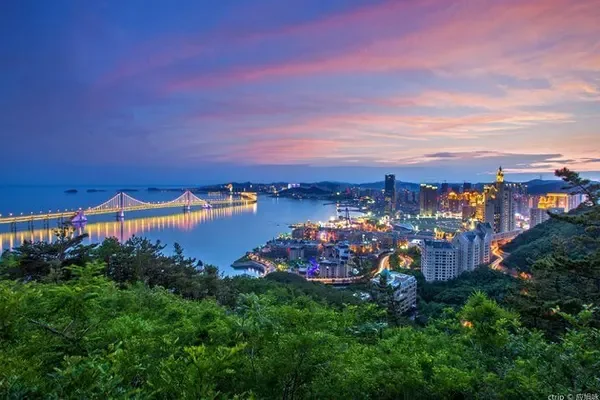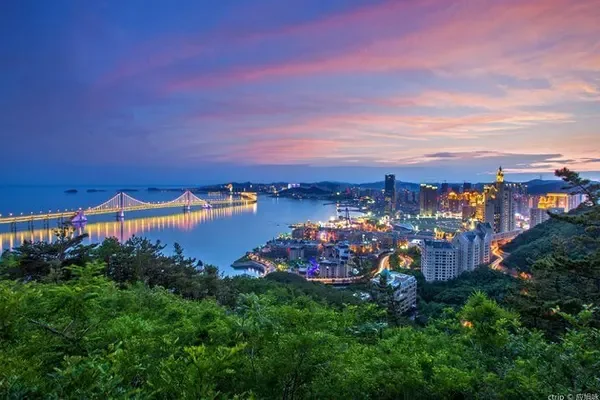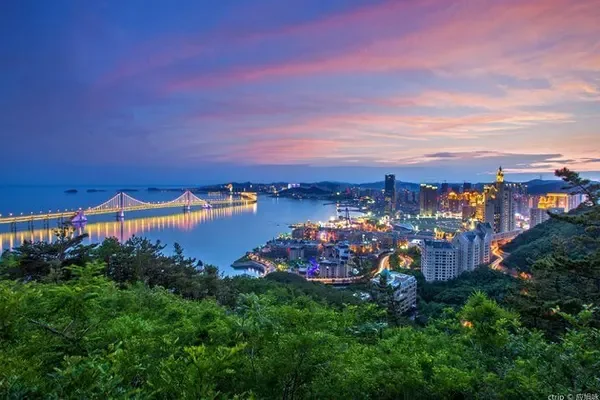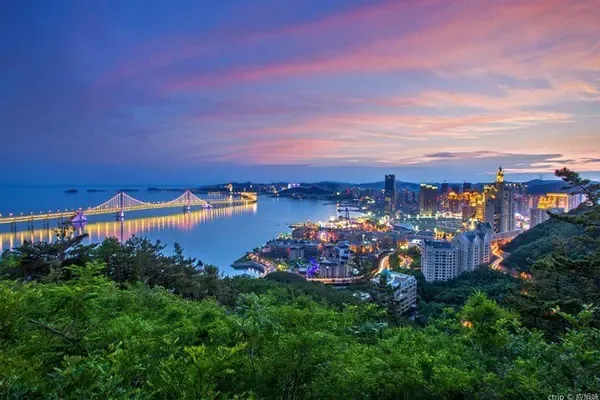














Day 1: 〖Welcome to Splendid Dragon City-Taiyuan〗Take a train or plane from all over the country→Go to the capital of Shanxi Province-Longcheng Taiyuan→Pick up by the master→Check in the hotel→Free activities
Time: All day: Welcome to Longcheng Taiyuan, we provide free pick-up service for you 24 hours a day; pick-up location: A: Taiyuan Wusu Airport, B: Taiyuan South Railway Station, C: Taiyuan Station, D: Taiyuan City Area
▼〖Reminder〗:
[1]: The pick-up master will contact you from 14:00 to 18:00 the day before your arrival in Taiyuan. Please keep your phone open, and keep the driver's contact number and emergency contact number for timely contact.
【2】: This group is your private small group, exclusive car pick-up, pick-up by the driver, no tour guide, the master pick-up station will pick up the station and airport according to the actual arrival time announced by your station and airport.
【3】: The general staff of the hotel go to work at 9 o'clock and start cleaning. Check-in can only be done after about 12 o'clock. If there are tourists who arrive early, they can store their luggage at the front desk first and move freely first.
【4】: This product can arrange an extra bed in the room, and you can arrange an extra bed in the room if you submit an order for three adults [including three breakfasts].
Time: All day: Tour time: about 1 hour ▲〖Reminder〗: The above itinerary is free choice, according to the time to Taiyuan, free choice, go by yourself, without a tour guide, please know.
█【Taiyuan】——the capital of Shanxi Province, referred to as Bing, also known as Bingzhou, Jinyang in ancient times, also known as Dragon City, a national historical and cultural city, a national garden city, a core city in the Taiyuan metropolitan area, and a political, economic, cultural, transportation and The International Exchange Center is a historical ancient capital with a history of more than 5,000 years and a city construction history of more than 2,500 years.
【1】: Places worth visiting: Shanxi Provincial Museum, Shanxi Provincial Coal Museum, Shanxi Jinci Museum, Fenhe Park, Taiyuan Jinshang Museum.
[2]: Places worth eating: Taiyuan Food Street [Snack Street], Taiyuan Noodle Restaurant [Boutique Noodle Restaurant] Hao Gang Haggis Shop [Winter Selection].
[3]: Places worth visiting: Liuxiang Commercial Street, International Trade Hall Six, Wuyi Square, Taiyuan Food Street, etc., to experience the cultural history with local characteristics.
█[Shanxi on the tip of the tongue]: Among the eight major cuisines in China, there is no Jin cuisine, but this does not mean that Shanxi has no delicacies that can satisfy your taste buds. Shanxi is known as the hometown of noodles. Characteristic, simple flour through the hands of Shanxi skillful women, with a variety of patterns and tastes.
█【Some recommended restaurants in urban areas】
【1】: Taiyuan City: Old Taiyuan Restaurant: The origin of Chinese food culture is in Shanxi, and the inheritance of Shanxi food culture is in Taiyuan. Recommended: squirrel mandarin fish, fried pork, sweet and sour meatballs and other specialties.
【2】: Taiyuan City: Shanxi Guild Hall: Mainly Jin cuisine, appreciate the superb cooking skills of the chefs. Recommended delicacies such as sesame oil yam, beef steamed bread, Yanbei buckwheat noodles, skin jelly, old stewed tofu, copper pot and so on.
【3】: Taiyuan City: Shunliu sliced noodles: the essence of Shanxi noodle culture tradition, dry noodles, Wuchang fish, sesame cakes, tomato three fresh noodles, jelly, marinated eggs, tomato egg noodles, and other authentic delicacies.
Day 2: "Looking at the scenic spots of Jinci - visiting the cultural ancient city" Hotel → Coal Museum → Jinci Museum → {Qiao Family Courtyard} or {Wang Family Courtyard} choose 1 from 2 → Ancient City of Pingyao [Inn in the ancient city]
Time: 14:00: Activity time: About 1 hour and 30 minutes [Wang’s Courtyard] — {tickets included} Wang’s Courtyard is located in the east of Lingshi County, Shanxi Province, and is a famous historical and cultural town in China. It was built by Jingsheng Wang's family through the Ming and Qing dynasties and lasted more than 300 years. Although it is not as famous as the Qiao Family Courtyard, the scale and momentum of the Wang Family Courtyard is the ceiling of the Shanxi Merchants' Courtyard. Anyone who has been to the Wang Family Courtyard will sigh, this is not a "courtyard", it is like a city! It consists of five alleys, five castles and five ancestral halls. The layout of the courtyards of the five ancient castles are respectively described as the five auspicious beasts of dragon, phoenix, turtle, lin and tiger. It is precisely because of its majestic momentum, as well as its architectural and cultural achievements, that it has always had the reputation of "the royal family returns without visiting the courtyard".
〖Reminder〗: ▶▶▶[Show the style of Shanxi merchants-Explore the historical picture scroll of Shanxi merchants-Fang Shanxi merchants' houses] Due to time reasons, choose one of [Wang Family Courtyard] or [Qiao Family Courtyard], and let us know in advance according to your needs Tour guide, please know! ! !
Day 3: 〖Cultural Ancient City-Shanxi Merchants Brilliant〗Hotel pick-up→Pingyao Ancient City {Pingyao County Government-Rishengchang Bank-North China Escort--} →Shuanglin Temple → Zhenguo Temple →Taiyuan [Su Taiyuan]
Time: 08:00: Activity time: about 3 hours 〖Playing in Pingyao Ancient City〗:
— Climb the city wall of the Ming Dynasty, touch the traces of the years with your own hands, and admire its majestic grace in silence; visit the National Bank of China, enter the underground vault, go to the Synergy Qing Bank, Rishengchang Bank, and delicious beef is waiting for you ; Watching the Chinese county government, there are regular performances every day, restoring the ancient process of judging the case, the plot and the characters are vivid. It shows people a complete picture scroll of extraordinary Shanxi merchant culture, society, economy and religious development.
〖Visiting Wall Street in China〗:
— Ming and Qing Streets: The traffic network of Pingyao Ancient City is composed of criss-crossing 4 main streets, 8 small streets, and 72 alleys. South Street is the central axis of the ancient city of Pingyao, with ancient market buildings running through the north and south. On both sides of the street, there are money shops, pawn shops, medicine shops, grocery shops, butcher shops, tobacco shops, silk and satin shops, etc., all of which are more than one hundred years old. There are many famous traditional shops, which is a prosperous tradition. Commercial Street, South Street controlled more than 50% of the country's financial institutions during the Qing Dynasty. Known as China's "Wall Street".
Day 4: 〖Buddhist Pilgrimage-Wutai Mountain〗Hotel→Taiyuan→Nanchan Temple→Foguang Temple→Wutai Mountain→Tayuan Temple→Xiantong Temple→Bodhisattva Peak→Shuxiang Temple→Hotel〖Sustain Wutai Mountain〗
Time: 12:00: Activity time: About 1 hour [Wutai Mountain] - {Ticket Included} Wutai Mountain, also known as Qingliang Mountain, is located in the northeast of Wutai County, Shanxi Province. It is the first of the four famous Buddhist mountains in China, known as "Golden Wutai ", also known as "Wutai Mountain" because it is surrounded by five peaks. According to legend, Mount Wutai is the dojo of Manjusri Bodhisattva. Mount Wutai is a Buddhist monastery in China where the green temple and the yellow temple complement each other. Together with Mount Putuo in Zhejiang, Mount Jiuhua in Anhui, and Mount Emei in Sichuan, they are collectively known as the "Four Famous Buddhist Mountains in China". Wutai Mountain is a unique phenomenon among the four famous Buddhist mountains. It is a Buddhist temple that pays equal attention to Tibetan Buddhism and Chinese Buddhism. The Qing Temple and the Huang Temple are adjacent to each other and develop together. The main temples are: Xiantong Temple, Pusading Temple, Tayuan Temple, Dailuoding Temple, Shuxiang Temple, Wuye Temple, Zhenhai Temple, and Longquan Temple. Mount Wutai, Lumbini Garden in Nepal, Sarnath in India, Bodh Gaya, and Kushinagar are known as the world's top five Buddhist holy places.
▶〖Reminder〗:Buddhist activities in Wutai Mountain belong to personal belief and personal behavior. It is not allowed to burn incense on the mountain now. If there are tourists who need to pay their vows, they can go to the side of the temple to buy it by themselves. Temple visits, everyone visits in different ways, so the tour guide will give an explanation at the door. After the explanation, guests will go to the scenic spot to visit by themselves. Please pay attention to the gathering time.
Time: 13:30: Activity time: about 1 hour 〖Tayuan Temple - Prayer Wheel〗:▶There are pagodas and rows of scriptures, which make people believe that turning scriptures can repent the past, cultivate virtue and accumulate blessings. This is a kind of belief and a habit of praying for blessings; the Tayuan Temple is located in the Buddhist center of Mount Wutai, Shanxi. Taihuai Town was originally the pagoda courtyard of Dahuayan Temple. In the fifth year of Emperor Yongle of Ming Dynasty (1407), the temple was expanded and built, and its current name was changed. It is one of the five major Zen forests in Mount Wutai and one of the top ten temples in Qingmiao. The buildings on the central axis include screen walls, archways, stone steps, crossing gates, mountain gates, bell and drum towers, Daci Longevity Hall, Pagoda Hall, and Shanhai Tower, Wenshu Temple Pagoda and other buildings. Covers an area of 15,000 square meters. There are three wooden archways in front of the temple, which are exquisite and elegant, and were built during the Wanli period of the Ming Dynasty. It is a symbol of Mount Wutai and a national key temple. You can chant scriptures along the 108 prayer-turning pagodas around the pagoda, praying for peace and disaster relief.
Time: 14:30: Activity time: about 1 hour 〖Xiantong Temple - Sightseeing and worshiping Buddha〗:▶Xiantong Temple, located on the north side of Taihuai Town, Wutai Mountain, Shanxi Province, is the largest temple in Wutai Mountain with the longest history. The temple was first built in the Yongping period of the Eastern Han Dynasty (AD 69), and was originally named Dafu Lingjiu Temple. It was expanded during the reign of Emperor Xiaowen of the Northern Wei Dynasty, rebuilt in the Tang Dynasty, and renamed "Dahuayan Temple". It was rebuilt in the early Ming Dynasty, and Taizu bestowed the forehead "Daxiantong Temple". In 1982, it was listed as a national key cultural relics protection unit.
Time: 15:30: Activity time: about 1 hour 〖Bodhisattva Top - Eliminate disasters and pray for blessings〗:▶"If you follow the Buddha, you will not fall into hell; if you follow the law, you will not fall into evil spirits; if you follow the monk, you will not fall into another life." Bodhisattva Ding is the name of the Manchu language, which means the place where Manjusri Bodhisattva lives. Climbing along the 108 stone steps, according to the Buddhist saying, will step on the 108 kinds of troubles in the world. Standing under the archway, touching the door and looking back at the 108-level stone steps, turning around and looking around, you can see the mountains in the distance, the clouds on the mountains, the Qingshui River nearby, and the majestic and colorful temple complexes. In the spring of the eighth year, the Party Central Committee departed from Yan'an to Xibaipo, Hebei Province, and passed Mount Wutai on the way. A poet once wrote a poem: "I didn't visit Wutai at first, and time is tight on the circuitous road. So far, I have had more fun and once stepped on the top of the Bodhisattva.
Time: 16:30: Activity time: about 1 hour and 30 minutes 〖Shuxiang Temple — 〗:▶"Light up your wisdom, live up to your youth, and be named on the gold list" The core building in the temple is Wenshu Pavilion (main hall), the existing temple was built in the second year of Ming Hongzhi (1489) by Zen Master Tielinguo. The main hall is five rooms wide and three rooms deep, with double eaves and nine ridges resting on the top of the mountain. The statue of Manjusri riding a lion enshrined on the Buddha platform in the middle of the hall is nearly ten meters high. "Worship and pray for the health and safety of the family members, and the double increase of blessings and wisdom." Together with Xiantong Temple, Tayuan Temple, Bodhisattva Temple and Luohou Temple, it is called the "Five Zen Places" of Wutai Mountain.
Day 5: "Pray for Wuye-Walk on Wisdom Road to pray for blessings at Xiaochaotai-Wonderful workmanship" Hotel→Wuye Temple→Dailuoding {Xiaochatai}→Climb to Xuankong Temple→Datong Ancient City Wall→Hotel〖Su Datong〗
Time: 06:00: Activity time: about 40 minutes 〖Wuye Temple — 〗:▶
The master said, "All kinds of experiences have cause and effect. If something goes against your wishes, there are other arrangements." Wuye is the honorific title of Manjusri Bodhisattva, the Dragon King of Guangji. Roar", Samantabhadra rides an elephant, the statue is tall. One pillar of incense is offered here to pray for success and wealth, and in the "Sanskrit sound" feel "one pure land, three pillars of fragrance, wishing that all wishes can be fulfilled".
〖Reminder〗▶:
Get up early to visit Wuye Temple, and then have breakfast. When worshiping and praying in the morning, fasting is important, so worship Wuye first and then eat. On the first and fifteenth day of the new year, there will be more people visiting, so they will go to Wuye Temple a little earlier.
〖How to make a wish〗▶:
Usually go to Wuye Temple on an empty stomach in the morning to make a wish. You can go there at midnight on the fifteenth or first day of the lunar calendar. It is said that you can make three wishes, and the wish must be fulfilled. You can also make a wish, but you don’t have to come to Wuye Temple to fulfill your wish.
〖Wishing steps〗▶:
When making a wish, burn incense first, which is to communicate with gods and Buddhas. The second step is to worship in the four directions of east, west, north, south, because there are Buddhas on all sides of Wutai Mountain. The third step is to worship or pray in front of the statue of Wuye.
Time: 08:00: Activity time: about 2 hours 〖Take the Great Wisdom Road to Dailuoding—Xiaochaotai〗:▶Before entering the temple, you need to climb 1080 steps or take the cableway to {cableway at your own expense}. In the temple on the top of Dailuo, there are 5 kinds of statues of Manjushri Bodhisattva on the 5 tops of Wutai Mountain. Here, you can worship 5 Manjushri Bodhisattvas at one time. Mount Wutai got its name because of its five peaks. A Manjusri Bodhisattva is enshrined on each peak of Wutai Mountain, namely Manjusri of Wisdom, Manjusri of Wisdom, Manjusri of Lion, Manjusri of Wugou, and Manjusri of Rutong. And Dailuoding is a small mountain within the five platforms. Five Manjushri Bodhisattvas are enshrined here in the main hall of Dailuoding, so it is called the small Chaotai of Mount Wutai. of five platform tops. The five-party Manjusri Bodhisattva of Mount Wutai is enshrined in a temple here.
Time: 14:00: Activity time: about 2 hours [Xuankong Temple]—{ticket included} is located between the cliffs of Cuiping Peak on the west side of Jinlong Gorge, Hengshan Mountain, Hunyuan County, Datong City, Shanxi Province. It is known as "Xuankong Temple, half a day high, The slang term for "three horsetails hanging in the air" is famous for its steepness like facing an abyss. Built in the late Northern Wei Dynasty 1400 years ago, it is the only unique temple in China that combines Buddhism, Taoism and Confucianism. The Xuankong Temple was originally called "Xuankong Temple". Above all, in Chinese, "Xuan" and "Xuan" have the same pronunciation, hence the name. Xuankong Temple is a key cultural relic protection unit in Shanxi Province, and it is the "No. 1 scenic spot" among the eighteen scenic spots of Hengshan Mountain. Built on a cliff and suspended in mid-air, its design idea is truly unique, and its architectural art is truly high. Three characteristics of Hanging Temple
▼〖Three Characteristics of the Hanging Temple〗:
〖The "Hanging" of the Hanging Temple〗▶
On the surface, the Xuankong Temple seems to be supported by more than a dozen wooden pillars with a thick bowl mouth. In fact, some wooden pillars are not stressed at all, so some people use "Xuankong Temple, half a sky high, three horsetails hanging in the air" to describe the Xuankong Temple.
〖The "Strange" of the Hanging Temple〗▶
The Hanging Temple is located in a small basin in a deep mountain canyon, hanging in the middle of the stone cliff. The peak on the stone cliff protrudes like an umbrella, which protects the ancient temple from the rain. Surrounded by mountains, the sunlight exposure time is reduced.
〖The "Ingenuity" of the Hanging Temple〗▶
The construction process of the Hanging Temple is adapted to local conditions, and the design of each part of the building is very delicate. The distribution of the halls is also very interesting. Along the mountain, there are changes in symmetry. Visitors walking between the corridors and plank roads seem to enter a maze.



